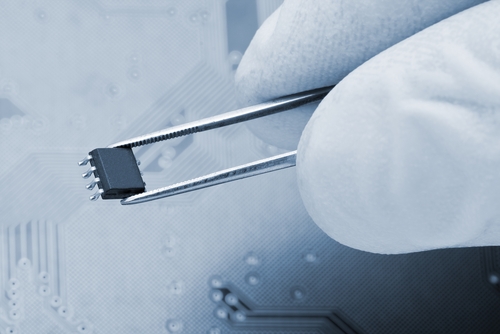
A bill has been reintroduced in the US that would hinder the production of counterfeit electronics in China and other countries.
The Secure E-waste Export and Recycling Act (SEERA) is a bill that aims to control the export of electronic waste (e-waste), which could be used in the production of counterfeit electronics, particularly microchips, that could re-enter the US domestic and military market.
The bill was originally introduced in June last year in the absence of a federal law that mandates responsible disposal and recycling of e-waste, although several states have laws in place. It is described as combating counterfeiters, especially those in China, and protecting US national security against fake electronics that make it into the US military supply chain.
Electronic waste includes computers and related equipment, servers and network equipment, tablets, televisions, digital picture frames, printers, digital cameras, mobile phones and video game systems.
The US is the world's largest producer of e-waste, and according to the Environmental Protection Agency, it is growing at a rate two to three times faster than any other regulated waste stream.
SEERA, reintroduced by Representatives Republican Paul Cook and Democrat Gene Green, would stop the flow of e-waste from the US by requiring domestic recycling of all untested, nonworking electronics, although all tested working equipment will still be exported.
Customs and Border Protection would be authorised to inspect shipments of electronics products intended for export and would stop the shipment and hold the shipper accountable if there was a breach.
"By keeping these materials in the US, we will keep them out of the hands of counterfeiters and data thieves," Cook said in a statement.
"China regularly counterfeits electronics and puts these dangerous products, including critical military equipment, back into the market. These electronic components threaten the reliability and safety of a wide range of technology. SEERA will ensure we're not exporting electronic scrap materials that come back to us as counterfeit parts and undermine the reliability of technology essential to our national security."
Green said: "Electronic waste is the fastest growing segment of our domestic waste stream. This problem will continue to grow unless Congress acts to ensure that e-waste is recycled responsibly in the United states and out of the hands of overseas counterfeiters. SEERA will help ensure our servicemen and women have reliable systems to protect us while creating thousands of jobs. I have worked on e-waste for a decade and look forward to Congress holding hearings on this bipartisan legislation and seeing it come before the House for a vote."
The bill, which would still need to be passed and signed into law, will amend existing Export Administration Regulations by designating nonworking/non-tested used electronic items as "electronic waste" and ban its export. The designation will be based on a list of common electronic products or fragments of products that contain circuitry.
There will also be strict regulations for exporters of exempted electronic waste with stricter reporting and declaration requirements to improve traceability and discourage counterfeiting.
According to the Coalition for American Electronics Recycling, fake electronics components are widespread, having been found in car airbag systems, domestic infrastructure and military hardware.
A study by the Senate Armed Services Committee found 1,800 cases of counterfeit parts in military technology across fighter jets, missile guidance systems, submarines, and helicopters, concluding "there is no way to predict how well they will perform, how long they will last, and the full impact of failure". There are also concerns that malware could be placed on counterfeits to help hackers and cyber-terrorists.
In May last year, Dell was accused of exporting e-waste, in violation of its own policies, when the Basel Action Network revealed, via a GPS tracking project, that 32.5 per cent of old electronic equipment such as printers and computer monitors were exported instead of recycled.
©
SecuringIndustry.com





